The Army doesn’t have enough PSYOP soldiers to fight the information war, inspector general says
- By Task & Purpose
Share This Article
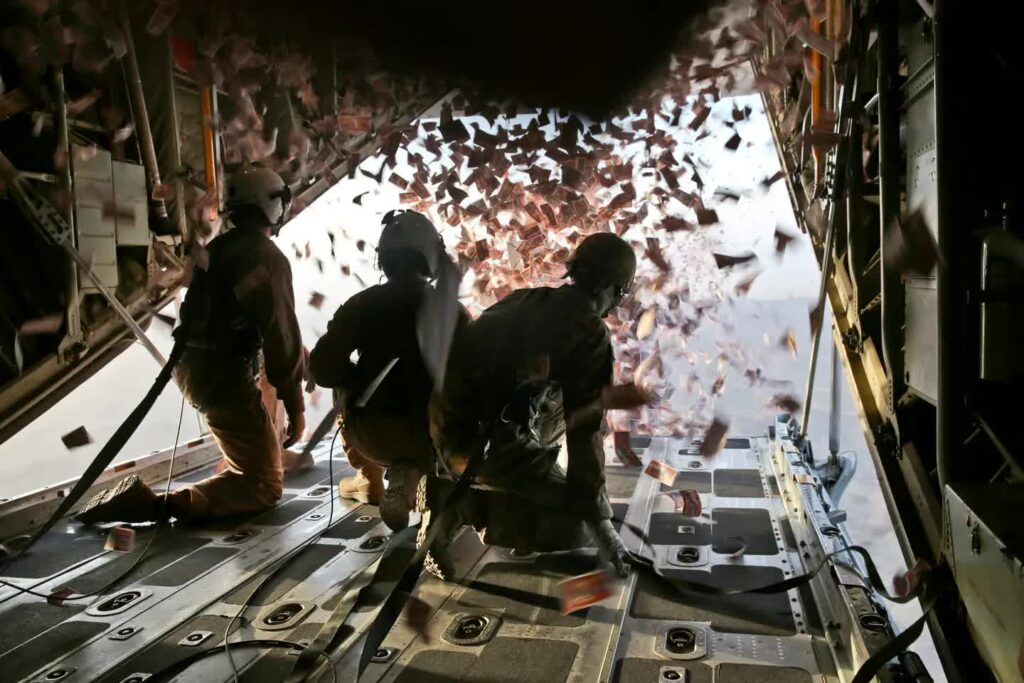
The Army doesn’t have enough PSYOP soldiers to fight the information war with China and Russia, the Department of Defense’s Inspector General said in a report released Wednesday.
The IG report found the Army has not recruited, trained, or retained a big enough workforce to meet the growing demand for Military Information Support Operations (MISO), commonly referred to as “psychological operations, or PSYOP” which aim to influence the beliefs and actions of other countries’ populations.
Without enough active duty soldiers trained in PSYOP warfare, the service has relied on reservists to “fill the global, full-time requirements for conventional MISO.” In fiscal year 2023, the Army’s four active and reserve Psychological Operation Groups operated with only 60% of their authorized strength, according to the report.
“The resulting operational tempo required of this under-resourced force risks burnout of these specialized Soldiers, which only serves to worsen the underlying conditions,” the report said.
However, Aaron Schmidt, a current PSYOP reservist, said the “burnout” issue is not unique to PSYOP but to reservists in general.
“There are things that we need to better address whether that’s manning, training and equipping,” he said. “But from my perspective, I do not see it as a burnout issue.”
The “divorce”
Problems in the Army’s PSYOP community began around 2006 with the “divorce,” where Army reserve civil affairs and PSYOP units under the U.S. Special Operations Command were reassigned to the Army Reserve Command.
The change “enhanced PSYOP support of special operations forces, but diminished the employment of this capability for conventional forces,” according to an article by a former soldier and author of a book on the origins of U.S. Army Special Warfare.
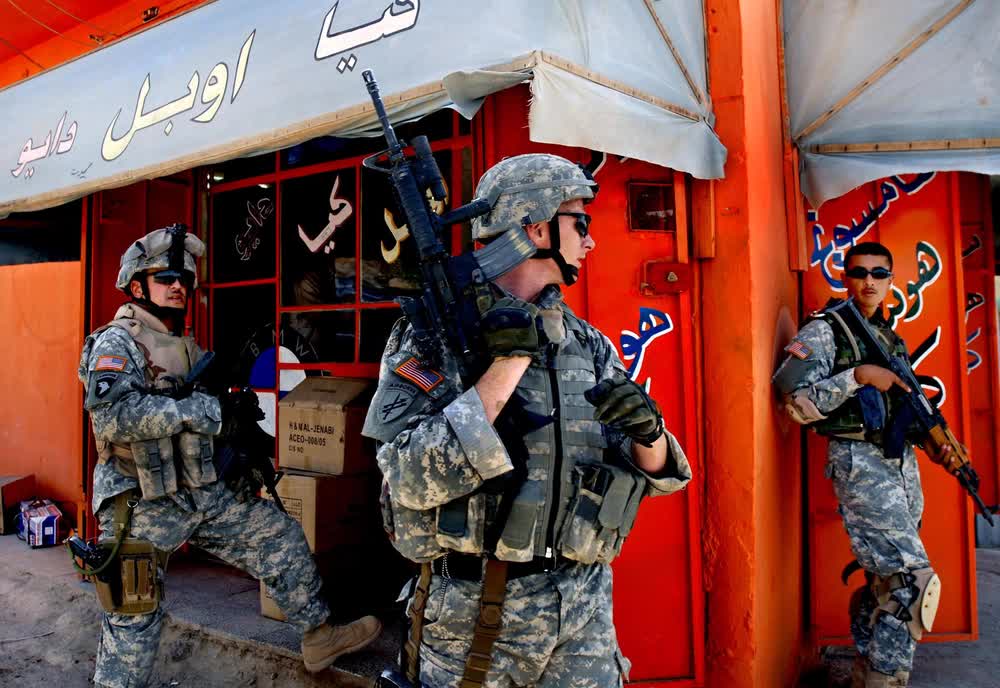
After September 11, as the requirements for active duty soldiers increased, U.S. Army Special Operations Command (USASOC) decided they were going to support other Special Forces units only, instead of the Army writ large, said Robert Curris, former commandant of PSYOP at the Special Warfare Center.
“That got lost somewhere along the way and so that put a lot more pressure on the reserves to do things that they neither had the manpower or training to sustain for any period of time,” Curris said.
Along with the reassignment, training became separate for the two groups which is different from other Army capabilities like armor or infantry where reservists and active duty soldiers train alongside one another.
“They don’t have language training. They’re not required to be jump-qualified. Their messaging processes are a little bit different and they are not tied into SOF activities and other additional SOF training that would be given to an active duty PSYOP soldier,” said former PSYOP Sgt. Maj. Kenneth Ramos, who also runs the Army W.T.F. social media pages.
PSYOP assessment and selection for active duty soldiers lasts 10 days and is designed to assess leadership qualities, critical thinking, and effective communication with populations around the world. After that, soldiers must endure roughly 41 weeks of physically and mentally demanding training with the PSYOP Qualification Course.
Curris said that Army PSYOP is losing its ability to “function at anything above the tactical level” partially because of sheer numbers and partially because of the command and control relationship and changes that were made under USSOCOM leadership.
The result, he said, has become a turf war over resources.
“It’s just blatant protectionism,” he said. “They don’t trust us and they don’t reinforce us. In fact, what they’ve said is that they would like to expand their information operations capability on the SF team without us. What that really means is, they don’t care if we go away, they would just build an internal capability which could then be Special Forces and they would control it.”
The other aspect is the “identity crisis” facing the special operations community which is trying to redefine itself post-Global War on Terror and now in the era of “Great Power Competition” with China and Russia where “there’s not as much of a role for the traditional Special Forces missions,” Curris said.
Related: Six tips to mentally prepare for Navy SEAL training
Impacts on national security
The former and current soldiers interviewed by Task & Purpose all expressed concerns over the outsized mission that PSYOP soldiers are tasked with.
“I think [Army] Information Operations as a whole is supposed to be a coordinating agency, but they try to take on a role of PSYOP because there is a lack of cyber around, which means that you get really bad PSYOP because they’re doing a job that they’re not trained for, but they’re trying to fill a need,” Curris said.
The IG report notes the 2022 National Defense Strategy which says that emerging technologies are making it easier for competitors (i.e. Russia and China) to “engage in operations below the threshold of armed conflict.”
The solution, according to the defense strategy, is that the U.S. military should use non-traditional tools like those in the information space. MISO is part of the military’s strategic, operational, and tactical capabilities and helps shape the operational environment and deterrence of large-scale combat operations, according to the DOD.
“We are diminished in our information warfare capabilities, as we speak, against China and Russia,” Ramos said. “We don’t have enough personnel and also, we don’t have enough outside eyes looking into the SOF organization to fix it.”
MISO or PSYOP are used by the military “to convey selected information and indicators to foreign audiences to influence their emotions, motives, objective reasoning, and ultimately the behavior of foreign governments, organizations, groups, and individuals, in a manner favorable to the originator’s objective” according to the IG report.
One PSYOP reservist told Task & Purpose that they’re doing a job that shouldn’t inherently be left up to the military, referring to the national power strategy of DIME: Diplomatic, Information, Military, and Economic.
“If the military is going to be conducting special operations with information support, what are those other state instruments that are going to be facilitating the other discussions for information support and that’s where that discussion around the I in dime comes in,” they said. “If we are going to say that the military is now responsible for something that it shouldn’t be responsible for, we are always gonna fail at it.”
Related: Incredible mortar-assembly challenges with the Green Berets
Policy issues
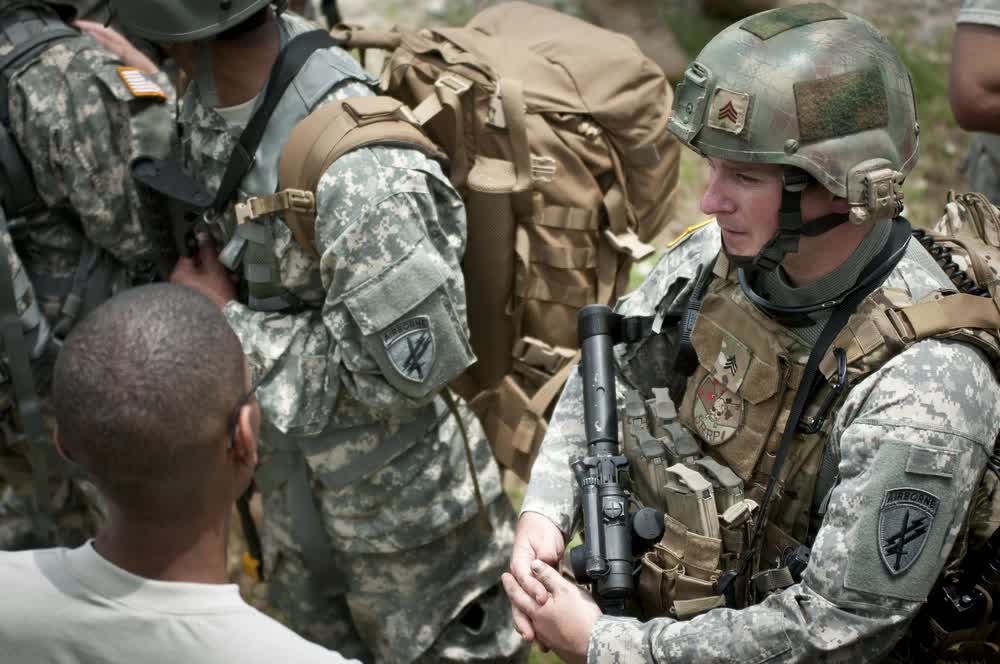
The IG also called out an Army officer career management policy that limits who can become a PSYOP soldier. Instead of PSYOP units recruiting soldiers out of high school or college, the policy requires officers to reach the rank of captain and then seek a transfer into a psyop branch.
New officers who previously enlisted as 37F PSYOP specialists also “cannot directly re-enter the PSYOP branch as PSYOP officers.”
“The inability to assign newly commissioned officers into the PSYOP branch, combined with possibly taking years to fully train reserve PSYOP officers, contributes to 10 of 32 manned reserve PSYOP detachments not having PSYOP-qualified commanders,” according to the report.
As a result of policies like this, active special operations PSYOP soldiers have been forced to work more than the standard ratio of one month deployed to two months at home and the Army Reserve’s PSYOP groups operated with 25% of captains required to complete missions, according to the report.
“If new reserve officers were to commission directly into the PSYOP career field as recent college graduates, they might have more time and flexibility to spend longer lengths of time in training, compared with captains who might have more conflicting responsibilities related to civilian careers and families,” the report quoted from a PSYOP force modernization proponent.
When it comes to recruiting, Curris said there’s not enough education on what exactly PSYOP does. Most assume they handle marketing-like activities. However, with the contentious relationship with special operations forces, Curris fears that PSYOP won’t get the attention it needs.
This article by Patty Nieberg was originally published by Task & Purpose.
Read more from Sandboxx News
- What really happened when F-22 Raptors squared off against the Eurofighter Typhoon?
- Built over 150 years ago, the first machine gun is still influential
- Dark Eagle is one of the US military’s most promising hypersonic programs
- How much does it cost to train an Air Force pilot? A LOT
- Celebrating the highest military honor in the US
Related Posts
Sandboxx News Merch
-

‘AirPower’ Classic Hoodie
$46.00 – $48.00 Select options This product has multiple variants. The options may be chosen on the product page -

‘Sandboxx News’ Trucker Cap
$27.00 Select options This product has multiple variants. The options may be chosen on the product page -

F-35 ‘Lightning’ Framed Poster
$45.00 – $111.00 Select options This product has multiple variants. The options may be chosen on the product page
Task & Purpose
Related to: Special Operations
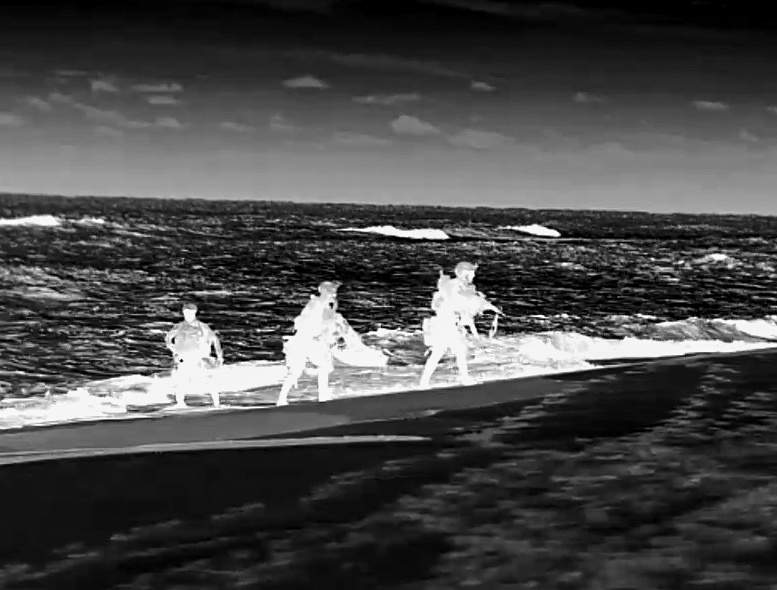
This is how Navy SEALs conduct “over-the-beach” operations
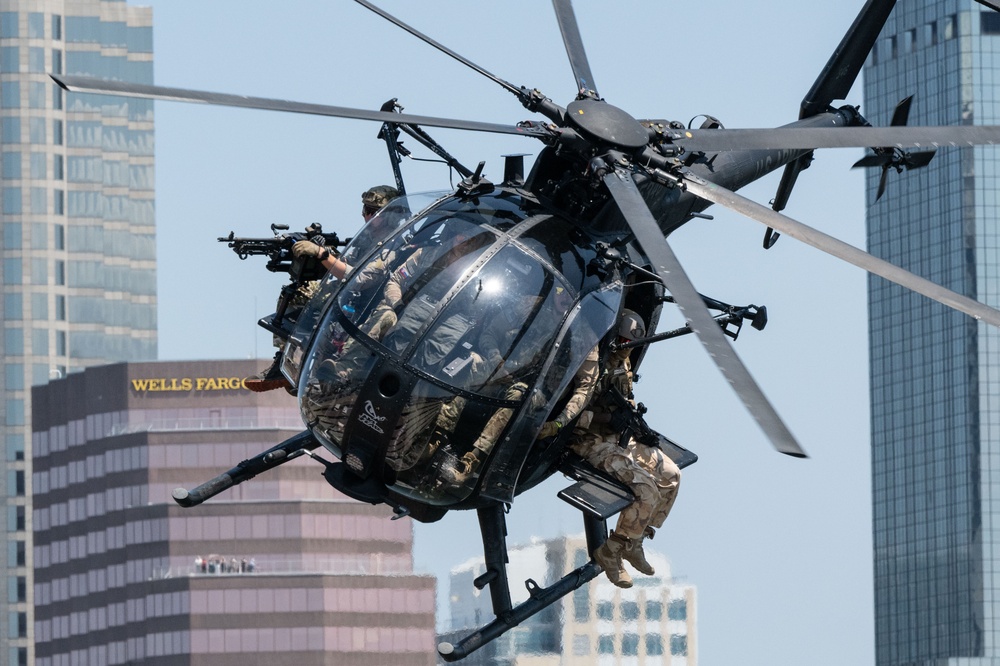
A Delta man’s failure to follow instructions was more than it seemed
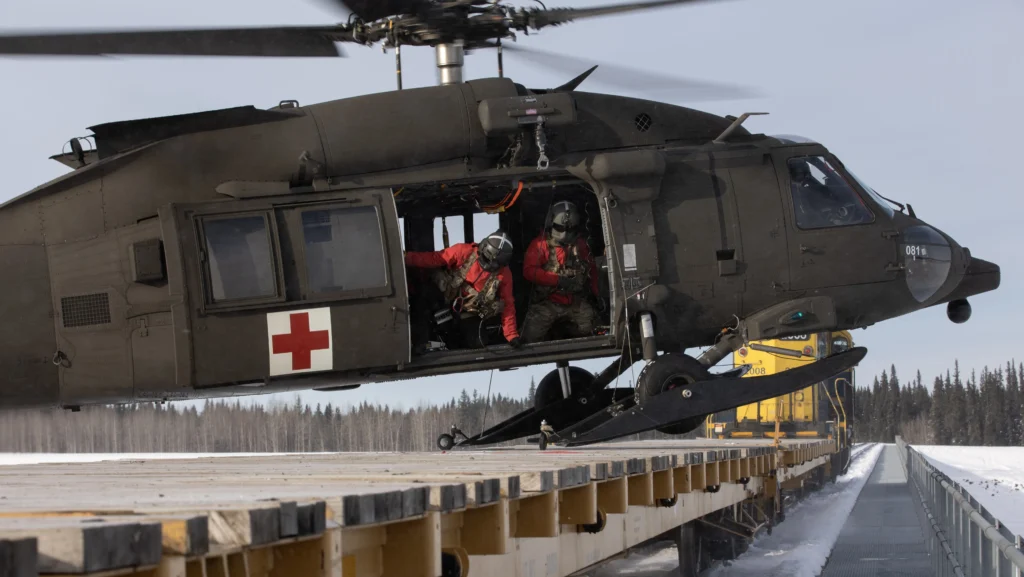
Soldiers in Alaska landed their Black Hawk on a train in a special ops exercise

Fixing the US Navy’s shipbuilding problems starts with the workers, agency analysts say
Sandboxx News
-

‘Sandboxx News’ Trucker Cap
$27.00 Select options This product has multiple variants. The options may be chosen on the product page -

‘AirPower’ Classic Hoodie
$46.00 – $48.00 Select options This product has multiple variants. The options may be chosen on the product page -

‘AirPower’ Golf Rope Hat
$31.00 Select options This product has multiple variants. The options may be chosen on the product page -

‘Sandboxx News’ Dad Hat
$27.00 Select options This product has multiple variants. The options may be chosen on the product page
